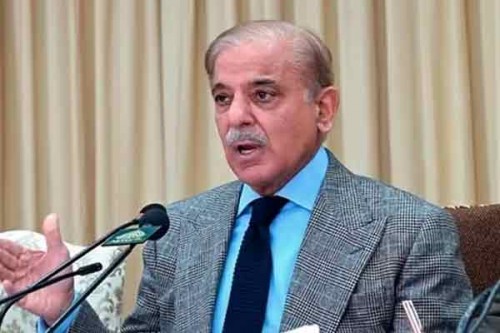Pakistani government has lost credibility to govern: Analysts

Islamabad, Jan 21 (IANS) Pakistani political analysts are saying that the incumbent PML-N-led government will not be able to avoid general elections for long as it has lost the "political and moral credibility" to govern the country, following the acceptance of the resignations of the PTI MNAs.
The analysts believe that the government wants to evade a political assault on it, but it will find it hard to pretend anymore that everything is running smoothly and elections will be held on time, particularly after the dissolution of two provincial assemblies and de-notification of around 80 PTI lawmakers, The Express Tribune reported.
Eminent scholar Prof Hasan Askari and analyst Zaigham Khan held the view that the government's decision to accept the resignations of PTI lawmakers, just to avoid snap polls, had not only created a huge vacuum but also undermined the democratic system,.
Prof Askari, who served as a caretaker Punjab Chief Minister in 2018, said it was time the government showed commitment to the parliamentary and democratic system.
"If there is no moral commitment to the democratic system, then you can see what is happening in Pakistan right now," he added.
Keeping the economic crisis in view, Askari explained, the system would ultimately become dysfunctional and the government would not be able to sustain for long, The Express Tribune reported.
"By-elections won't make any sense just ahead of the general elections," he noted.
"The federal government is trying its best to avoid elections but it can't. The political and moral credibility has severely been undermined," Prof Askari observed.
Giving the example of New Zealand's Prime Minister Jacinda Ardern, who has recently decided to quit citing a burnout, Askari said her country did not even face a situation like the one in Pakistan yet its premier preferred to quit instead of clinging on to power by hook or by crook.
"That isn't the case in Pakistan," he added.
Zaigham, who is an anthropologist and development professional, said the situation had become "expensive for the ruling alliance", especially, when it could not avoid the International Monetary Fund (IMF) programme for the next couple of months because the risk of default had increased manifold, The Express Tribune reported.
"However, the cost of the IMF programme is too much," Zaigham observed.
"If the government goes to the IMF then it would lose its remaining political capital but if it doesn't then the country would default on its external payments," he elaborated.
Maintaining that the government's policy was reactive and decision-making was based on fear, Zaigham said the legitimacy of parliament and democracy would be questioned if the government went for by-elections instead of general polls.
"It's very hard for me to understand how the government can gain from the current situation," he wondered.
Zaigham said to continue ruling in the absence of a major chunk of lawmakers in the National Assembly would raise a serious question about the moral authority of the government and legitimacy of Parliament.

|

|

